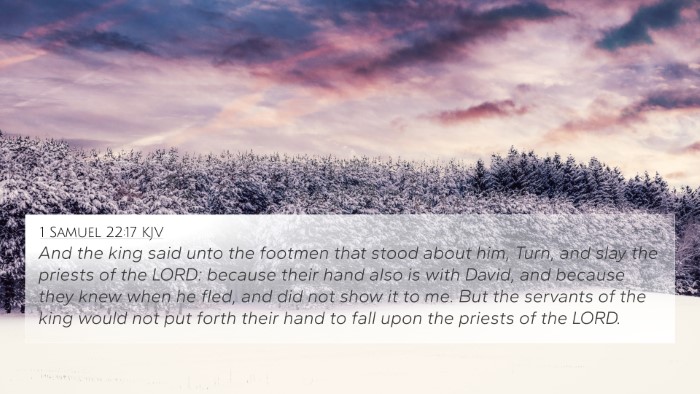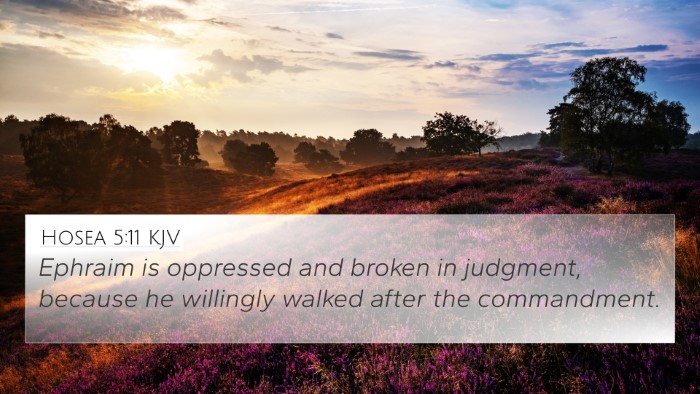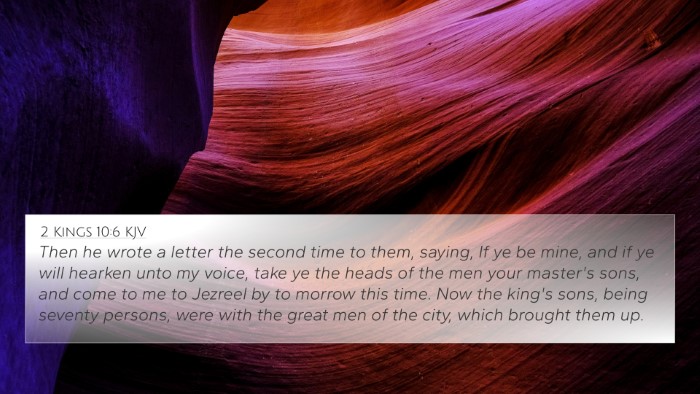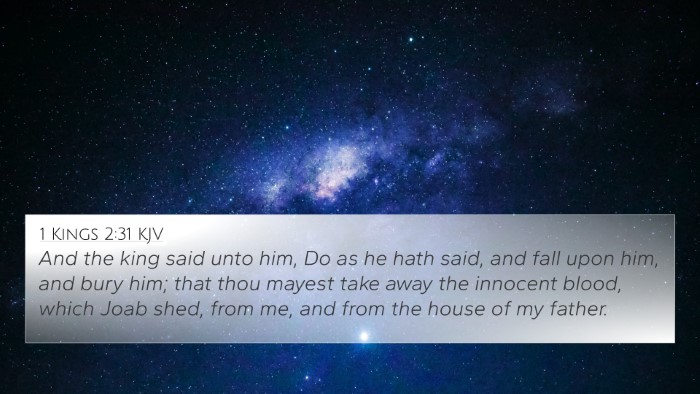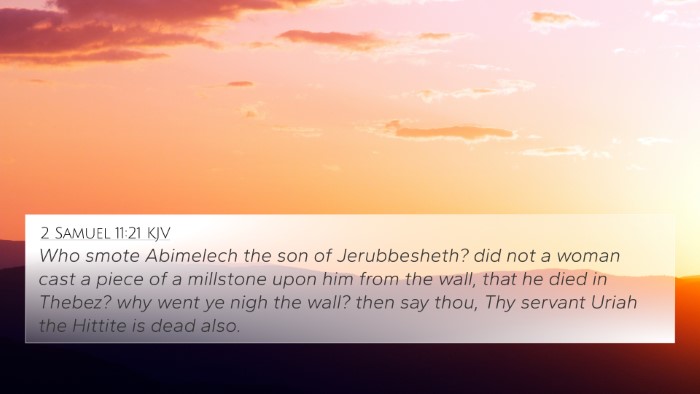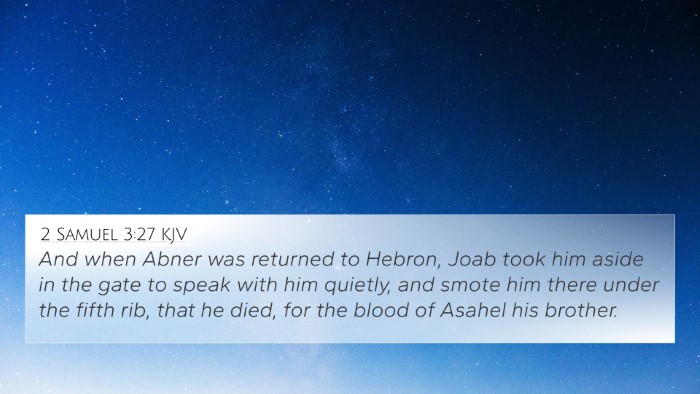Understanding 2 Samuel 11:16
2 Samuel 11:16 states, "So it was, while Joab besieged the city, that he assigned Uriah to a place where he knew that there were valiant men."
This verse is pivotal in the narrative of King David's grave sins, particularly in relation to Bathsheba and Uriah. It highlights the manipulative and premeditated actions of King David through Joab, emphasizing the tragic consequences of sin and the resulting human suffering.
Commentary Insights
The verse showcases several themes which resonate throughout the Bible. Here are insights drawn from public domain commentaries:
-
Matthew Henry:
Henry reveals that David's actions stem from his desire to cover his sins. Uriah’s placement in danger symbolizes David’s betrayal and highlights the premeditated nature of David’s schemes. It speaks to God’s view of justice and accountability.
-
Albert Barnes:
Barnes notes that Joab’s obedience reflects the darker side of military allegiance, and he acts on David’s orders without question. This emphasizes the moral decay that can accompany a power-driven leadership and the ramifications it has on innocent lives.
-
Adam Clarke:
Clarke further expounds that the strategic placement of Uriah among the valiant men adds to the sense of treachery. It showcases the tragic manipulation of loyalty, leading to Uriah's eventual demise and David's greater condemnation in the eyes of God.
Thematic Connections to Other Scriptures
Understanding the gravity of 2 Samuel 11:16 can be further explored through its connections to other Bible verses. Below are cross-references that amplify the themes of sin, manipulation, and divine justice:
-
2 Samuel 12:9-10:
God's condemnation of David for his actions, emphasizing that sin has consequences and justice must prevail.
-
Psalm 51:4:
A heartfelt acknowledgment by David of his sins, demonstrating repentance and recognition of wrongdoing.
-
1 Kings 15:5:
Reference to David’s heart being right before God, contrasting with the sins he committed, thereby illustrating the complexity of a faithful life marred by sin.
-
Proverbs 28:13:
"He who covers his sins will not prosper, but whoever confesses and forsakes them will have mercy." This clearly supports the theme of accountability in one’s actions.
-
Galatians 6:7:
"Do not be deceived, God is not mocked; for whatever a man sows, that he will also reap." This illustrates the principle of consequences for one's actions.
-
Matthew 7:2:
"For with what judgment you judge, you will be judged; and with the measure you use, it will be measured back to you." This highlights the reciprocal nature of justice.
-
Romans 2:6:
"Who will render to each one according to his deeds." This underlines the moral order of the universe that God upholds.
-
John 8:34:
"Most assuredly, I say to you, whoever commits sin is a slave of sin." This ties into David’s entrapment in his own wrongdoing.
-
Hebrews 4:13:
"And there is no creature hidden from His sight, but all things are naked and open to the eyes of Him to whom we must give account." Reinforces the inevitability of divine accountability.
-
1 John 1:9:
"If we confess our sins, He is faithful and just to forgive us our sins and to cleanse us from all unrighteousness." Suggesting hope for redemption amidst sin.
Exploring Cross-References in the Bible
The significance of 2 Samuel 11:16 stands as a cautionary tale about the depths of sin and deceit in human nature. It reflects the broader themes of the Bible concerning sin, repentance, and the moral obligation humanity has toward one another.
For those studying this passage or seeking to find related verses using tools for Bible cross-referencing, employing a Bible concordance or a Bible cross-reference guide can greatly enhance understanding and facilitate deeper study.
Utilizing cross-reference Bible study methods can also solidify one’s grasp on the interconnectedness of Scripture, providing pathways for further exploration and revelation.
Conclusion
In summary, 2 Samuel 11:16 is a critical verse that sheds light on the complexities of human behavior and divine justice. As one navigates through the connections between Bible verses, utilizing cross-references offers a profound insight into the biblical narrative, showcasing themes of sin, justice, and mercy.
Engaging in a comparative Bible verse analysis enables believers and scholars alike to better understand the ethical ramifications of their actions, as well as the redemptive themes woven throughout the Scripture. In this way, one may uncover the miles of inter-Biblical dialogue that exists across both the Old and New Testaments.



